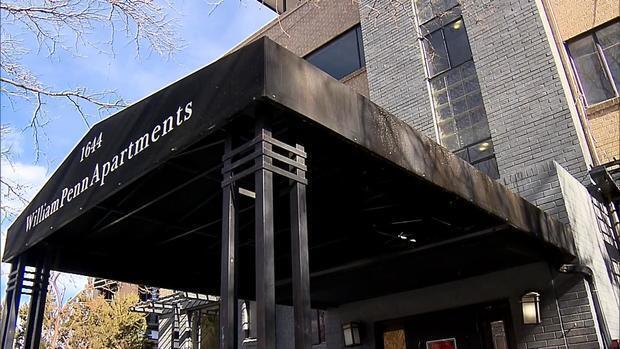Getting your Trinity Audio player ready...
A Haredi Jewish man is suing the city of Aurora, Colorado, alleging religious discrimination and selective enforcement after he was cited for dozens of housing code violations in connection with properties owned by his family's real estate firm.
Zev Baumgarten, who is affiliated with CBZ Management — a New York-based company owned by his relatives, filed a motion for discovery claiming the city pursued him personally over violations typically handled through property owners or official managers. He has been cited for 26 violations related to poor maintenance of apartment buildings, including rodent infestations, unsanitary conditions and structural issues.
Baumgarten argues that, even though he is not the official owner or acting manager of the properties, enforcement notices were sent directly to him — a departure from standard protocol, he said, and one not applied to any other landlord in the city.
The petition alleges that a senior city inspector, Brizzy Maines, told him he was being targeted “because you are a Hasidic Jew.” In another instance, city attorneys allegedly suggested incarceration was a fitting punishment because Baumgarten “comes from East Coast money” — a phrase his lawyers said was laden with antisemitic undertones.
The complaint also includes claims that a former property owner referred to CBZ Management’s team as “cheap Jews” in front of city officials, who, according to the petition, “nodded in agreement.” That individual allegedly offered to share “personal and sensitive information” about Baumgarten’s family with the city.
Baumgarten claims the city escalated its actions even after the company reached a formal agreement to close one property and pay a $60,000 fine in exchange for dismissing further proceedings. He said the city violated the deal by continuing enforcement despite documented renovations and inspections deeming the buildings up to code. CBZ Management spent more than $390,000 to refurbish a single building, according to the petition.
Complicating the case are allegations involving the Venezuelan street gang Tren de Aragua, which reportedly infiltrated the apartment complexes. Baumgarten said city and police officials failed to warn the company about the gang’s activities, even after learning the group had taken hold in the area. He said he was attacked and injured on one of the properties but that the suspects — who were recorded on surveillance cameras — were arrested only months later, which he alleges was a deliberate delay.
City officials dispute Baumgarten’s claims, saying enforcement stemmed from serious neglect and hazardous living conditions. Aurora Mayor Mike Coffman and Police Chief Todd Chamberlain held a press conference inside a CBZ-owned apartment infested with cockroaches, citing years of documented violations and failed remediation.
The city said the company rents units for $1,200 to $1,400 a month in historically high-crime areas and serves low-income tenants, including immigrants. Several properties have since been shut down due to police enforcement operations, leaving hundreds of residents displaced. City officials argue closures were necessary to ensure public safety.
Get the Ynetnews app on your smartphone: Google Play: https://bit.ly/4eJ37pE | Apple App Store: https://bit.ly/3ZL7iNv
Despite claiming he only had familial ties to the company, Baumgarten has regularly visited the properties, coordinated repairs and communicated with city agencies, officials said — justifying citations issued in his name.
4 View gallery


The police chief at the press conference in one of the neglected apartments
(Photo: Aurora Municipality)
Last month, a Denver judge issued a warrant for Baumgarten’s arrest after he failed to appear in court. His attorneys said he fled Colorado for an undisclosed location following the alleged assault and has promised to attend a future hearing. A preliminary hearing is scheduled for June.
Baumgarten’s petition seeks to compel the city to disclose documents he says will prove the actions against him stem from religious bias and antisemitic attitudes, forming the basis of a selective enforcement defense. The city has two weeks to respond in court. Officials have denied any discriminatory motive.





